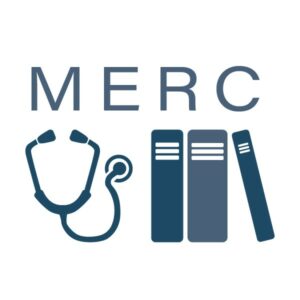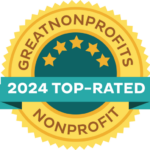 Knowledge Shared, Lives Changed: Inside Medical Education Resource Center (MERC)
Knowledge Shared, Lives Changed: Inside Medical Education Resource Center (MERC)
For complex and often misunderstood conditions like ME/CFS and Long COVID, one of the greatest barriers to effective care isn’t just the absence of proven treatments—it’s the widespread gaps in clinical understanding. That’s what led to the creation of the Medical Education Resource Center (MERC), a collaborative initiative founded by the Bateman Horne Center (BHC) and Open Medicine Foundation (OMF). MERC is not just a website or a resource library—it’s a strategic, global effort to reimagine how medical professionals are trained to understand and treat ME/CFS and related infection-associated chronic conditions (IACCs).
Why MERC Exists
Too often, patients with ME/CFS or post-infectious illnesses go years—sometimes decades—without answers. That’s because most medical providers were never taught to recognize hallmark symptoms like post-exertional malaise (PEM) or orthostatic intolerance (OI). According to Dr. Lucinda Bateman, BHC’s founder and chief medical officer, “Even clear documentation of the prevalence of Long COVID has not moved the needle much in terms of reinventing medical education at all levels. It’s a slow process.”
OMF founder Linda Tannenbaum witnessed this gap firsthand, fielding daily requests from patients desperate for a knowledgeable provider. “We partnered with BHC so they could increase their programs and ultimately expand access to informed clinicians,” she explains. “From Day 1, we knew this would make a significant impact.”
Built on Partnership, Designed for Real-World Use
MERC combines OMF’s research reach with BHC’s clinical expertise to offer practical, scalable, and lived-experience-infused education. Clinicians, researchers, and patients shape every MERC module, guide and video, ensuring that it doesn’t just inform; it resonates.
“MERC meets providers where they are—whether in private practice, academic systems, or allied health,” says Tahlia Ruschioni, deputy executive director and education director at BHC. “We take a whole-person, team-based approach because that’s what this population deserves.”
MERC materials have now reached:
- 15,000+ providers in 89 countries
- 29+ medical and allied health disciplines
- Institutions like Stanford, Dartmouth, University of Rochester, and NIH’s RECOVER program
The initiative has also produced standout tools like the Crash Survival Guidebook, which received over 100,000 views in just a few months and has become a go-to resource for both patients and providers navigating PEM.
A Think Tank for Change
Behind the scenes, MERC operates with a small but mighty “think tank” of experts who strategize ways to reach more educators, licensing boards, and healthcare systems. From grand rounds and journal publications to mentoring residents and embedding ME/CFS content into medical curricula, the team is working on every front to mainstream this education.
But challenges remain. “The main challenge in the U.S. is the lack of a centralized medical education system,” says Dr. Bateman. “Curricula vary wildly, and there’s still skepticism around these conditions. Ironically, it’s the federal agencies like the NIH and CDC that have recognized the illness spectrum and attempted to provide guidance.”
What’s Next for MERC?
On May 9, MERC will launch its most comprehensive resource yet: the Clinical Care Guide: Managing ME/CFS, Long COVID, and IACCs. This roadmap covers diagnosis, assessment, and management for both new and seasoned clinicians and is designed to be practical, evidence-based, and immediately useful.
MERC is also expanding its patient-facing tools, helping people understand core concepts like PEM, pacing, and OI to engage more effectively with their providers and in everyday life.
How You Can Support MERC
MERC is nimble, efficient, and high-impact—but it needs support to grow. The greatest needs? Funding, partnerships, and institutional buy-in.
“Everyone in our stakeholder community can help by sharing MERC resources with their providers,” Dr. Bateman says. “Some of our strongest advocates are clinicians who became ill themselves and now use their voice to change the system.”
If MERC could accomplish one thing this year, Tannenbaum and Bateman agree: it would be to embed ME/CFS-related questions into licensing exams—because when that happens, medical schools will have no choice


